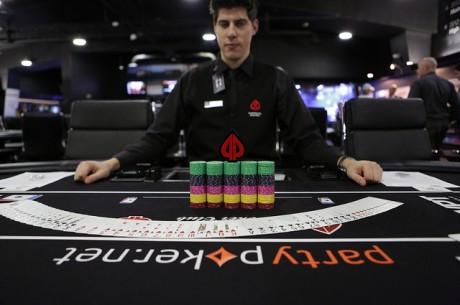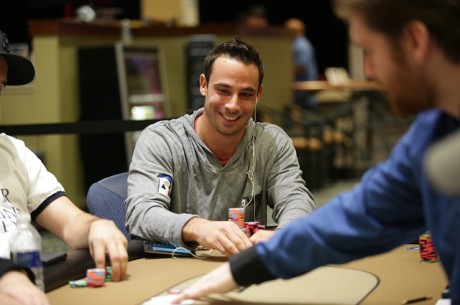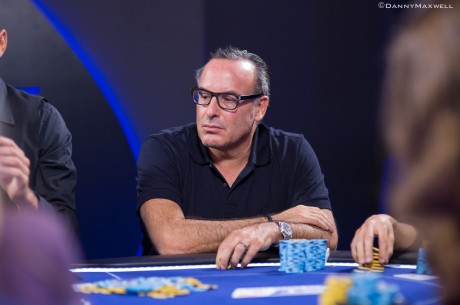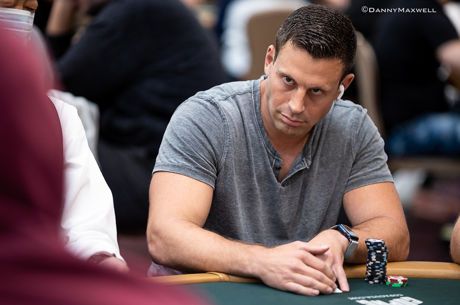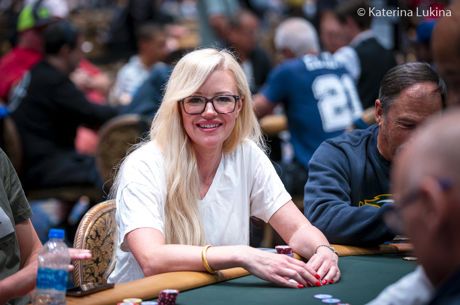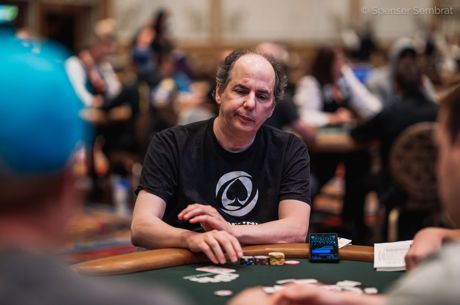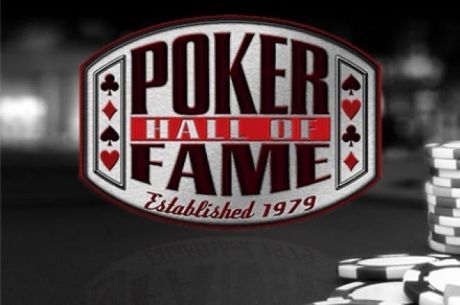Andy Frankenberger Offers a Shot Clock Alternative

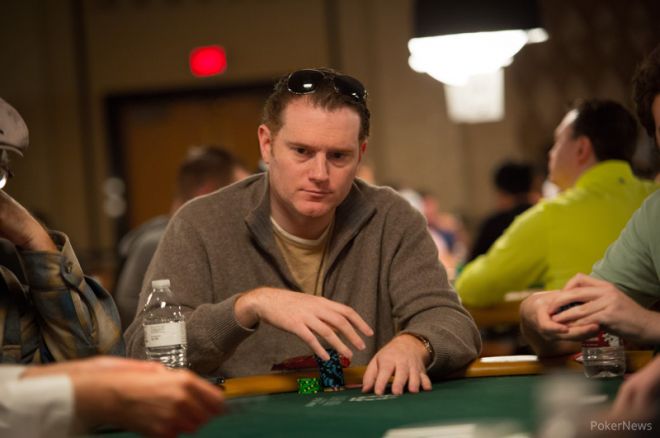
Should poker implement a shot clock? That's the question on the minds of of the poker world. The World Poker Tour asked that very question last week at the L.A. Poker Classic, and their impromptu poll indicated that 80% of players believed there should be some sort of shot clock.
This past weekend, PokerNews' Editor-in-Chief, Donnie Peters, and Senior News Editor, Chad Holloway, debated whether or not a shot clock would be good for the game, and now one of poker’s best, Andy Frankenberger, offers his take on the situation.
The two-time World Series of Poker bracelet winner and WPT Season 9 Player of the Year doesn’t believe a shot clock is the answer, but he does believe the slow-playing phenomenon must be addressed. Here are his thoughts.
We've all been there — we are the short stack at the table and some Internet wizard, capable of playing eight hands at a time online, plays every hand and tanks every street. It's tilting to say the least, and by the 80% who voted in favor of the shot clock recently at LAPC, I am surely not alone in my frustration. I applaud the WPT for soliciting player feedback in an effort to improve the game. The problem with that poll is that there was only one solution presented — the shot clock. It's impossible to know if 80% of the players are in favor of the shot clock specifically or if, like me, they simply view it as the better alternative to doing nothing. What's 100% clear is that a problem — slow play — has been identified, and change is needed. But what change?
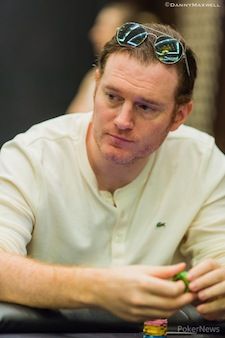
Tournament poker is a marathon, not a sprint, after all. We don't want to turn the game into a painful 26-mile sprint for those who are fortunate enough to go the distance. I think shot clocks would be ideal for turbo tournaments — the 400-meter dash of poker tournaments. There, players absolutely cannot afford to sit back and watch the clock tick away, and the focus for anyone who signs up should be on making fast decisions. For a well-structured main event, where a major title is on the line, however, I think it's worth considering a less drastic change than a shot clock that could receive similar, if not more player support.
In my experience playing on the circuit for the past three years, the vast majority of players take what I would describe as a reasonable amount of time to make decisions. When a player who normally acts in an appropriate amount of time goes into the tank for a difficult decision, I don't view it as a problem. The players who should be the target of any new rule changes are, in my opinion, the ones who tank on every street, for relatively inconsequential decisions so that their timing doesn't give away any information.
While the "problem players" I've encountered are occasionally amateurs, more often they are pros. The problem is compounded by the fact that these pros not only play slowly, they play often; they play a wide range of hands, while the amateur offenders are involved in far fewer hands and, therefore, suck up far less clock. We don't want to create any rules that will discourage, intimidate, or disadvantage amateurs from playing the game.
As a relative newcomer to the game — I only started playing professionally in 2010 — I remember what it was like to be the new guy at the table. Decisions that I would make quickly now involved more thought and time when I faced them as a rookie. With the pressure of a shot clock, I can't imagine that I would have been able to process the information in those critical spots quickly enough to compete with the pros and, more importantly, I might not have wanted to try. A shot clock is going to be intimidating to the very players we most want to attract to the game. Right or wrong, part of what drew me to the game was a feeling that if I took my time, thought things through, and made the right decisions, I could compete with the pros.
As we all know, the answer to how much time a player should have to make a decision is, like so many answers in poker, "it depends." There are many factors that should go into whether I feel a person is taking too much time — the size of the bet relative to their stack, the regularity with which the player goes into the tank, the stage of tournament and financial implications of the decision, and even the experience of the player. I want to give an amateur player the time he or she needs to make a decision.
Rather than implement a rule that universally dictates who has how much time, I think the decision should be left to those who most closely understand the situation at hand — the players at the table. When I call clock, I don't do it just because I feel that enough time has gone by — I'm not looking to be a maverick clock policeman — I do it because I am confident that others at the table feel the same way as me, that there is some unspoken consensus.
The current system in place correctly empowers players to self-regulate the issue of time, but it needs to be improved because it has three critical flaws:
- There exists a perception that players who call clock are being unsportsmanlike. Consequently, players are too intimidated to call the clock, even when it is painfully obvious to them and others at the table, that it is appropriate to do so.
- It takes too long. By the time a player calls clock, it has often already been a long time already — too long. On top of that, it takes time, understandably, for the floor to arrive and begin running the clock.
- Rogue players looking to needle someone should not have the ability to affect the action of a hand by calling clock. A player shouldn't be able to call clock just because he or she is on tilt or has a personal vendetta against another player at the table, but the current system allows players to do just that.
While a shot clock is certainly better than not addressing the problem at all, I believe there is a far less drastic and potentially more effective solution out there — a solution which would keep the decision of what constitutes too much time where it belongs — with the players at the table.
My idea involves two minor but critical changes:
- Empower the dealer to initiate the clock countdown without involving the floor;
- if and only when clock is called by two or more players.
Let's look at how these changes can address the three flaws I identified with the current process.
- Players will be far less intimidated to call the clock because they know that for clock to actually be called, another player at the table will have to second the motion and they will not be the "one" who called clock. They will be part of a consensus, and it's tough for players to argue with a consensus. Over time, it will be viewed less as unsportsmanlike and more as what it should be — a necessary part of the game.
- The process will be much faster if the floor doesn't have to come over to initiate the clock process. If we are willing to discuss the implementation of a shot clock, which would empower the dealer at each table to regularly declare a hand dead if the clock expires, why not discuss allowing the dealer to count down the clock and declare a hand dead in the (much more rare) instance where multiple players have called clock.
- Requiring a minimum of two people to call the clock prevents a single player from initiating the clock countdown inappropriately.
I would suggest that, since the floor won't be involved, each player be given one time chip/lammer at the beginning of each day to use to add one minute to the clock so that, even if against a consensus of two or more players, he or she will have an extra minute, if needed, once per day. I would further suggest that a player can, after the hand is over, call the floor to ask for a ruling if he or she feels that clock was called unfairly, even if by multiple players. If the floor rules in favor of the player, those two players could no longer call the clock on that player without a third player agreeing as well. This would prevent potential clock bullying or collusion by two players.
No system will be perfect, but I'm confident the rule changes I suggest above would be more fun, social, and fair to amateurs and pros alike than a shot clock. Even the shot clock cannot prevent a seasoned pro from tanking 30 seconds on every single street, far too much time for inconsequential decisions. And let's face it, slow play is a problem, yes, but if I'm ranking problems with the current game, reentries are a much bigger problem.
Thanks to the WPT for acknowledging the problem, soliciting player feedback, and looking to do something to fix it. Poker will go on, with or without the shot clock, marathon or marathon sprint, but I for one would like to see main events remain clock free.
What are your thoughts on Frankenberger’s shot clock compromise? Let us know in the comments section below.
Get all the latest PokerNews updates on your social media outlets. Follow us on Twitter and find us on both Facebook and Google+!

